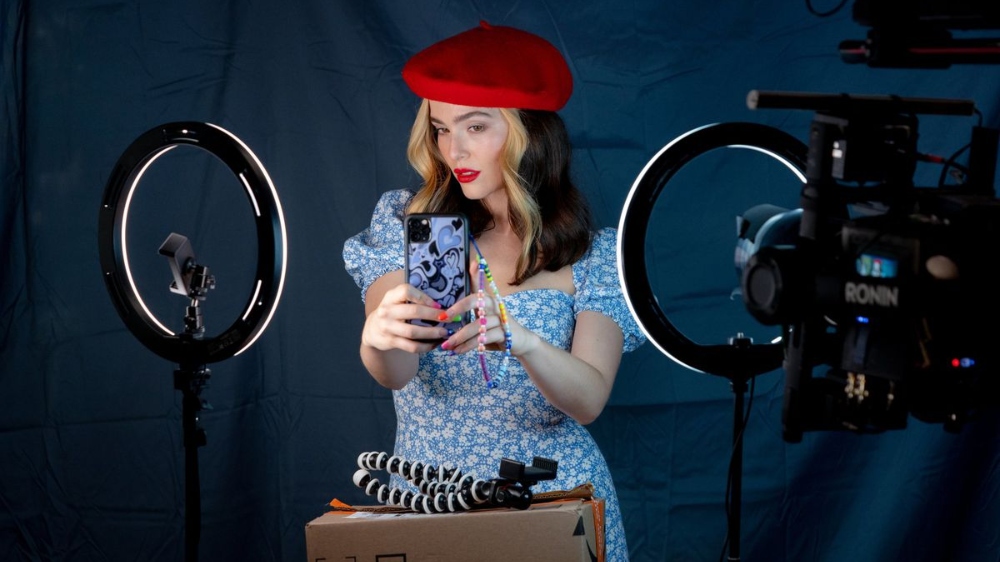
In a world where YouTube stars sign with the WWE and take roles in movies from trained actors, one must question whether a great responsibility comes with having a large social media platform, and actress-turned-director Quinn Shephard boldly explores that question, as well as influencer culture as a whole, in her new film Not Okay, which is now streaming on Hulu.
Zoey Deutch stars as Danni, a writer who becomes an influencer by photoshopping herself in Paris while remaining in New York City. While this façade begins as something harmless, her house of cards begins to fall once she befriends Rowan (Mia Isaac), a teenage activist who survived a school shooting.
Not Okay is Shephard’s second directorial effort, and she remained completely behind the camera for this film after starring in her own debut. Shephard recently spoke to Below the Line about making that leap, working with Deutch, Isaac’s star-making performance, and shooting the film’s most intense scene.
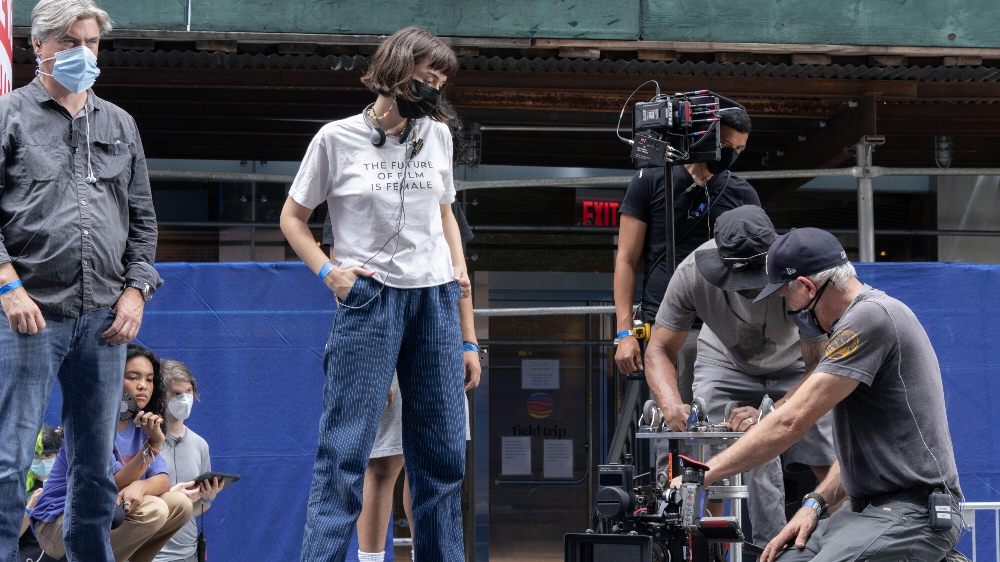
Below the Line: Quinn, thank you so much for taking the time to talk about Not Okay. I’m excited to talk to you and I can’t wait for people to see it. Ironically, on social media, I saw that you’re in New York City right now doing press for the film…
Quinn Shephard: I am. Imagine if I was like, “No, I’m not — I’m just pretending to be in New York.” [laughs]
BTL: That would be perfect for this particular press tour. Speaking of which, what has this press tour experience been like for you as a director rather than as an actress?
Shephard: It’s good, it’s fun. It’s a little bit of a whirlwind. It’s been a while since I’ve been doing press for a film; my last feature came out in 2017 or 2018, so it’s been a bit, but it’s really exciting, [and] fun, and I get to play dress up.
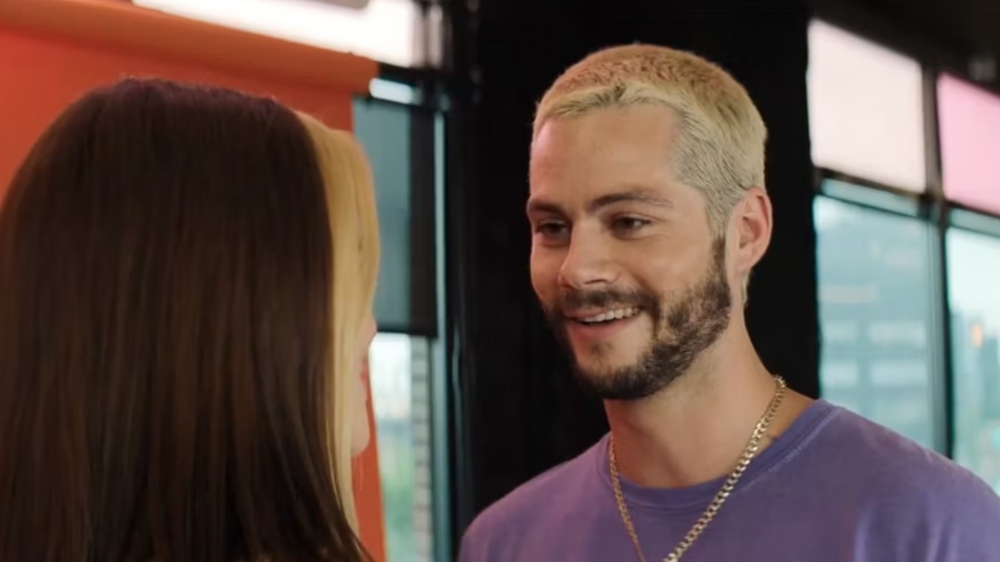
BTL: You mentioned your first film, Blame, which you wrote, directed, edited, and starred in. What was it like to now transition to being fully behind the camera with Not Okay? Did you have any urge to be in front of the camera in this film?
Shephard: I honestly didn’t. On my first feature, Blame, I really realized [that] it is quite hard to split your attention [between] all of those roles, and I knew that on my next film, I wanted to just be behind the camera; which is honestly where I’m focused now in my career — I’m not really acting anymore, so I really enjoy just getting to focus on being behind the camera. You have enough to do as a director without also having to worry about acting, and I wanted to be so elaborate and detail-oriented in the way that this was shot and the look of the film and just finessing all [of] the performances and working really hands-on with everyone, so I’m happy that it fell that way.
BTL: In regards to this story, what’s so interesting about Not Okay is that this is the first film I’ve seen that tackles “influencer culture” and social media in this way. Was there any particular reason you wanted to take that subject matter on in this film?
Shephard: Yeah, it’s interesting. When I made Blame, I was very much like, ‘I never want to make a movie with texting and screens,’ I’ve always been very influenced and impacted by classic cinema — a lot of older films [and] a lot of foreign films — I haven’t typically gravitated towards the use of texting and screens [in] movies, but I really felt like if I was going to do it, I wanted it to feel incredibly personal and very satirical and something that would be very relatable to people my age today, living in America. And with this concept, it felt like I had the opportunity to do something that I was really excited about and to use social media and the internet as a character and as a framing device for a bigger social and political conversation.
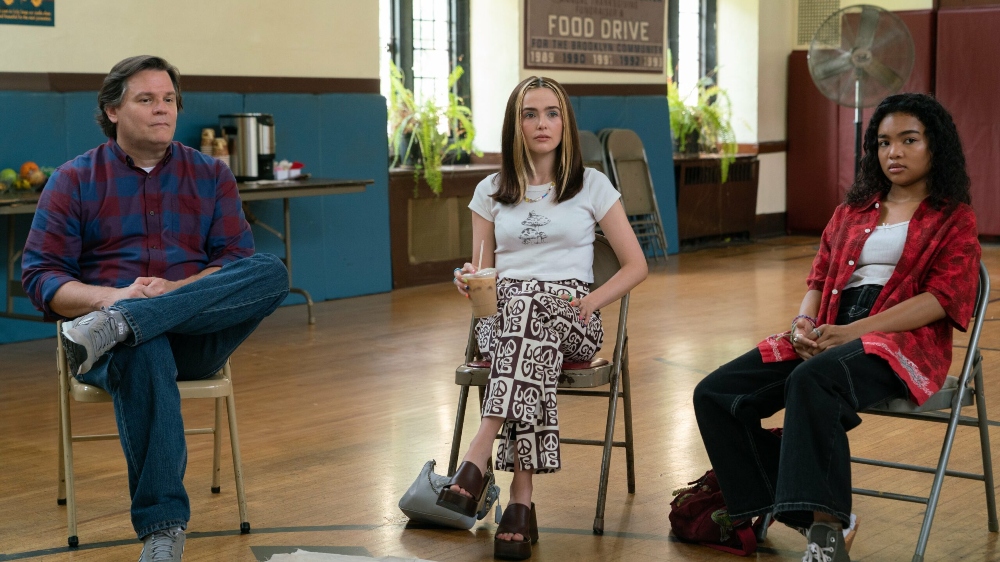
BTL: You just mentioned that Not Okay does have a lot of satiric elements in it — you could classify it as a satire — and you mentioned old cinema. As I said, your film is so original and unique, but were there any films that you looked at when writing this film?
Shephard: Totally. I mean, as a teenager, some of my favorite films were, like, Heathers and American Beauty, and I’ve always really loved the genre of satire. I think Network is a great example of brilliant media satire that is somehow even more relevant today.
In terms of more modern films, it [Not Okay] was really inspired by everything from Sorry to Bother You to The Square, and a lot of really clever and innovative uses of the genre. Those are a handful of my inspirations, and obviously, I’m intimately familiar with a lot of male-driven satire, which has been the trend in media. I think American Psycho and Nightcrawler come up a lot in conversations, but it was exciting to get to do something like that with a woman at the center.
BTL: And the woman at the center is Zoey Deutch, who’s fantastic in the film. Can you talk to me a little bit about the casting process and the meetings you had with her? I imagine you had a lot of conversations with her, but did you warn her that she might be playing the literal worst person in the world?
Shephard: Oh, she knew because she read the script before we met. I met Zoey really briefly in the past, I’m friends with her sister, Madelyn, so we had been at a party together once or twice before. But I honestly had her in mind when I wrote the script. I immediately thought of her [and] I think she has an awesome trend in her career of playing a lot of these very daring roles. She’s really funny, but she’s also relatable and she’s great at drama and I just felt like her range really covered everything I was looking for in Danni.
Our first meeting after she read the script was awesome and immediately I got the sense [that] she wanted to completely dive in, not take any of the teeth out of it, [and] just go as far as we needed to go with Danni to really land the message of the film, which was very much the same page that Searchlight was on when they came onboard. So it was great that we were all seeing the same vision and could be really collaborative.
And Zoey is a very hands-on and collaborative actress and producer, so it was a lot of fun getting to work with her.
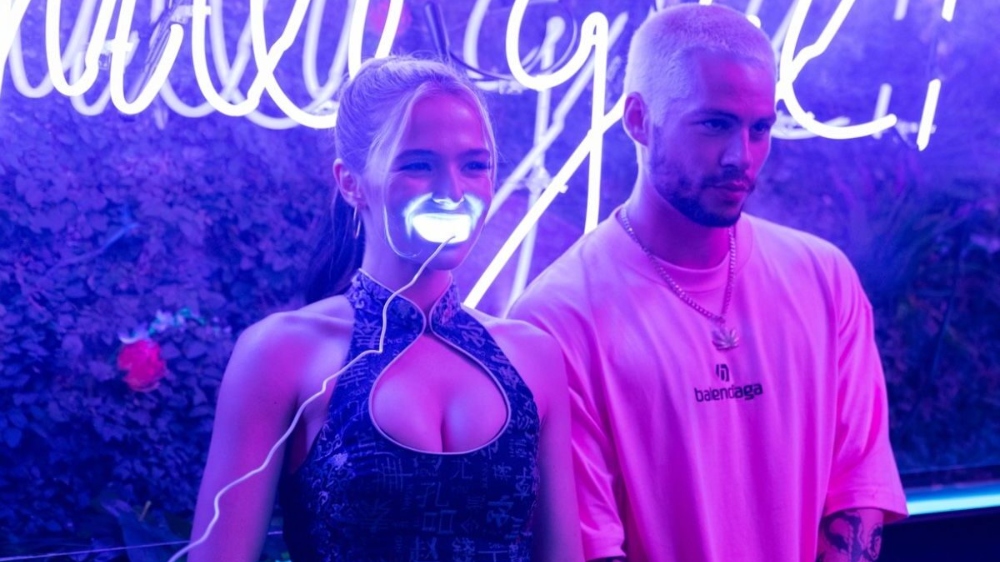
BTL: Was it your idea to have that warning before the film about the unlikeable character?
Shephard: It was my idea. It was something that we were always going to do a content warning for the film — not necessarily a satirical one — because there are a lot of themes of trauma in the movie and we wanted to acknowledge [that]. After our first test screening, we started to notice how much people struggled for the same reason we were talking about. There’s been a lot of male-driven satire for a long time and a genuine piece of feedback that we repeatedly got on the movie was that people were kind of like “Why would you put someone like Danni at the center of a film? She’s terrible.” And it was interesting because you don’t hear that kind of criticism for films like American Psycho, and Nightcrawler. [With] Walter White [from Breaking Bad], people aren’t like, “Why are we making a TV show about this guy? He’s terrible.” The fact that he’s terrible is the point.
And it’s really interesting, [because] we just are not doing that as much with women. And it was a consistent note that we got of people genuinely being like, ‘I don’t even know if I can say I like the film because they don’t know how they’re supposed to feel. Am I supposed to like her?’ And I’m like, ‘No, clearly not. It’s still this movie and it’s pretty clearly not on her side,’ but as soon as we put the warning on the film, it completely shifted the kind of feedback so far to the other side that if anything, people were then saying ‘I thought she was going to be so unlikeable, but like I kind of sympathized with her a little.’ It was really interesting how much one tiny acknowledgment of it changed the audience’s perception.
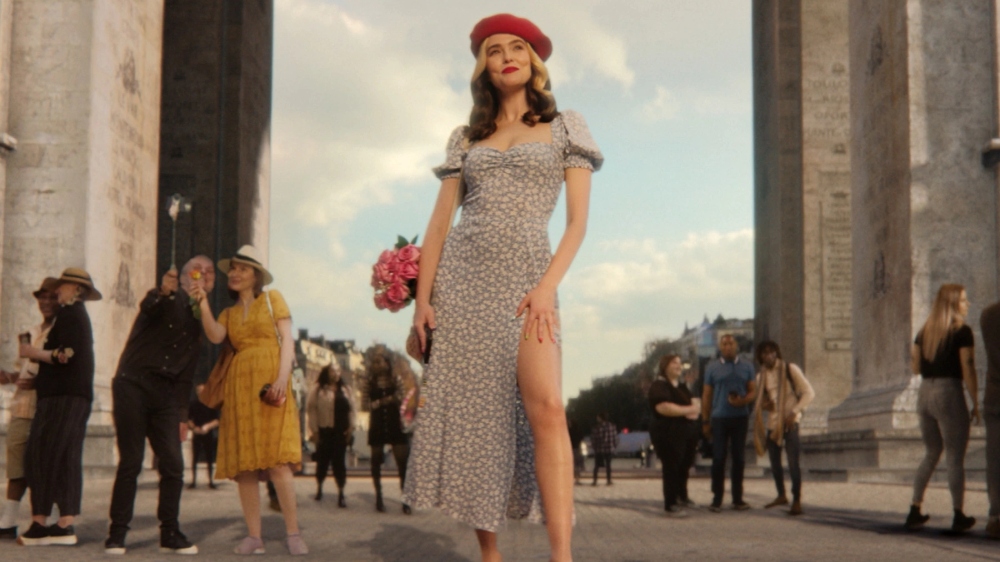
BTL: There’s one scene I have to ask you about — I won’t name the characters for the sake of people who haven’t seen the film yet — but there’s a confrontation between two characters in an office space. For the viewer, the audio goes out and so you see the intensity on the actors’ faces, but was there a script for the actors, or was it improvised? And how did you get them in that headspace?
Shephard: [It] actually wasn’t scripted — that’s a great observation. That scene wasn’t scripted because it always intended that we wouldn’t be able to hear the dialogue. Mia [Isaac] took some time and actually wrote a lot of lines that she felt like her character would want to say to Danni, and we did one or two takes where she actually used her own script because she wanted to express certain things that she felt Rowan would want to say, which I loved. We [did] a lot of improv; I think there was a rawness to that scene because I wanted the girls to be talking over each other and overlapping and for it to feel very broad, almost like no one could finish a sentence because it was like they were failing to communicate and Danni was failing to listen.
I love the idea of keeping an audience away from something when you know exactly what it is, or [that] it might almost be too painful to hear, and it was one of those scenes that felt like we knew exactly what was coming and we’ve been waiting for it the whole film so we just didn’t need to hear it and I also didn’t want to detract from how important Rowan’s words later in the film are by hearing them there.
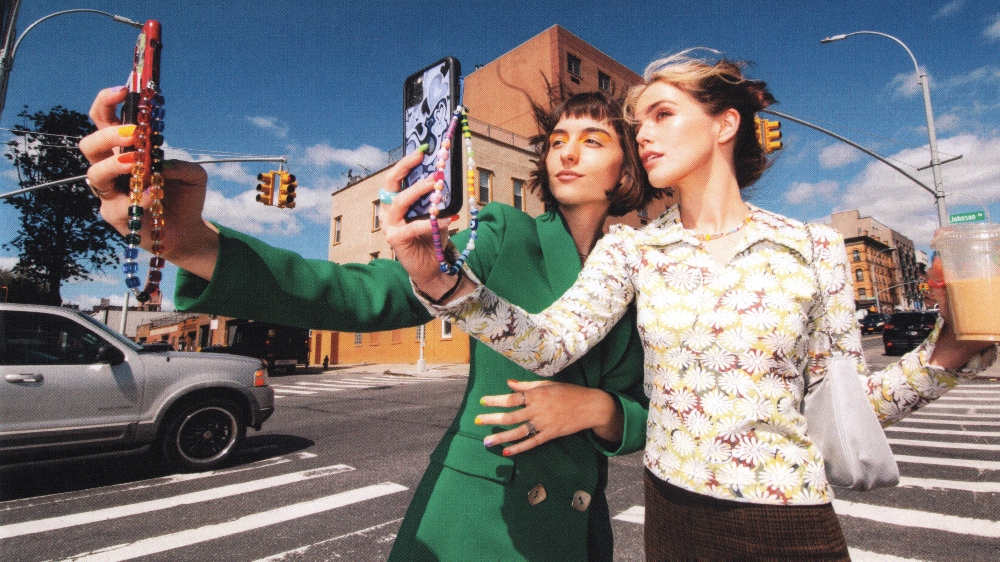
BTL: I do want to talk about Mia Isaac really quickly because she’s had a great summer between this and Don’t Make Me Go. I don’t know which was filmed first, but this is I think her second role.
Shephard: She filmed Don’t Make Me Go right before Not Okay.
BTL: Well she’s phenomenal, and I think this is a star-making performance for her. How does it feel for you to kind of see this? Because I imagine she’s going to be working for a very long time and have a successful career.
Shephard: She’s shooting right now. I’m so sad she can’t come to the premiere because she’s filming. Mia is amazing. It’s such an inspiration when you get to work with somebody who’s so young, so raw, and so talented. She was 17 when we shot this and it was her second role and she’s one of the kindest, most generous people in addition to being so unbelievably talented.
It was honestly a director’s dream to have somebody who’s so open on set. She was so receptive to [any] note I would give her or, like, emotional work I would want to do, and so we were able to collaborate so easily. But in addition to that, there’s a real joy that I get from working with younger and newer talent and, like, being able to watch them blossom from there. It makes me so excited to have gotten to work with her at such an early point in her career because I agree, she’s going to be a big star.
Not Okay is now streaming on Hulu.





